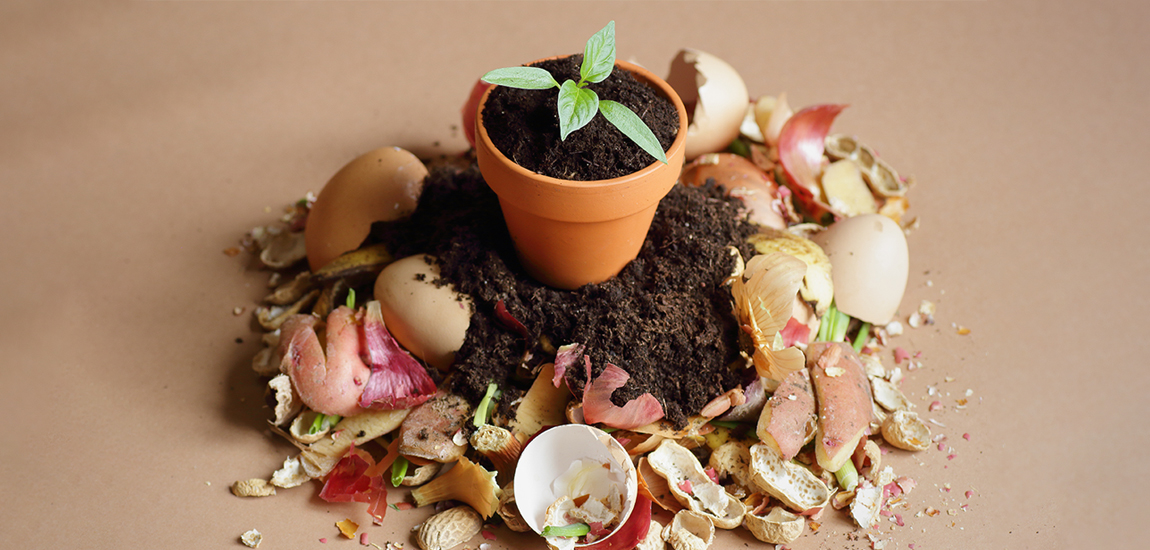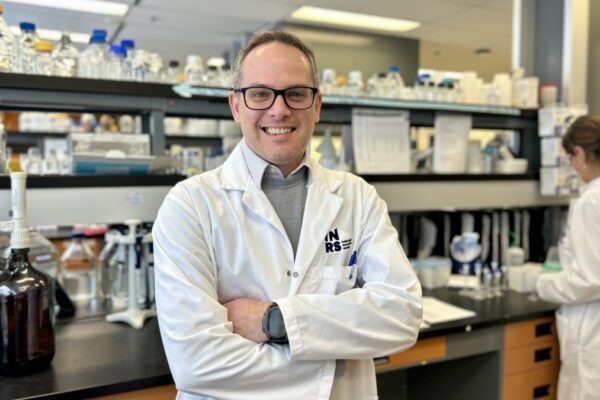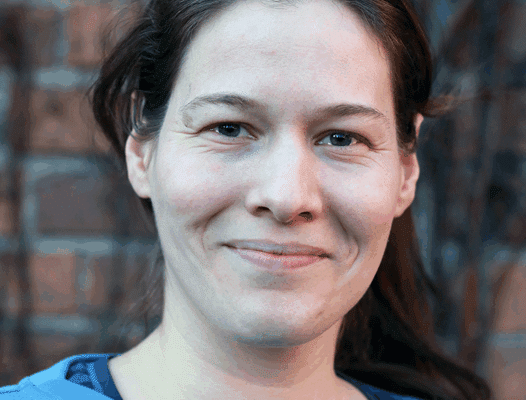- Research
- Research Grants
An Innovative circular economy project co-led by professor Louise Hénault-Ethier receives $6.5 million from the Government of Canada and several partners.

Inter-university project for new approaches are essential to reduce the carbon footprint of the country’s agri-food sector
A project by scientists at Institut national de la recherche scientifique (INRS), Université de Montréal, and Western University, in Ontario, has been awarded $6,545,700 in funding to help reduce agri-food byproducts and their greenhouse gas emissions.
In Canada, agriculture, as well as food waste and its management, together produce more CO2 in a single year than passenger transportation. With that in mind, new approaches are essential to reduce the carbon footprint of the country’s agri-food sector.
As the climate crisis continues, the team co-directed by professors Joan Laur (IRBV) and Louise Hénault-Ethier (INRS) has set itself the goal of better understanding and optimizing the way microorganisms transform organic matter. In other words, how are agri-food byproducts or food leftovers biodegraded by microorganisms, fungi or insects that feed on them?

Louise Hénault-Éthier, associate professor at the INRS and director of its Eau Terre Environnement research centre.
“We can really reduce the carbon footprint of the agri-food system by creating a circular economy inspired by the natural functioning of ecosystems, and optimize these applications using the power of genomics.”
“We’re hoping to optimize natural transformation bioreactors, such as mushroom and insect farms, which are already used by urban farmers; with this process, waste will be transformed into food or fertilizers,” says Laur, a co-investigator on the project and member of UdeM’s Plant Biology Research Institute (IRBV).
A ‘living laboratory’ in the heart of Montreal
Initially, their research will focus on urban settings, with Montreal serving as a true “living laboratory.” With an area of almost 500 square kilometres that includes a dozen microbreweries, nearly 150 bakeries and many other producers of organic matter scattered throughout the city, Montreal is considered the ideal location for this project.
Using genomics tools – that is, tools involving genetic structure and DNA – the scientists will be able to study the interactions between the microorganisms that take part in the biodegradation process.
“We’ll be able to test how biological processes can be harnessed to improve what bacteria, insects and fungi consume, and to reduce greenhouse gas emissions before, during and after bioreaction,” explains Laur. “The microbiological biodiversity involved here could be of interest to agriculture and the agri-food sector as a whole.”
The team will work closely with a number of circular-economy partners, including Tricycle, Mycélium Remédium, and Compost Brome, that operate nature-inspired bioreactors. The aim of this collaborative research is to recover organic waste at different stages of the agri-food chain.
“With this major grant, whose innovation driver is genomics, this great team offers all the strength of cutting-edge expertise to public and private partners wishing to innovate. This diversity of approaches demonstrates that interdisciplinary contributions are important, and that they will provide solutions to the environmental and societal challenges of today and tomorrow.”
Luc-Alain Giraldeau, Chief Executive Officer of the INRS
In all, about twenty researchers from four universities (Université de Montréal, INRS, Western University, and McGill University) will be working on this large-scale, multidisciplinary project, in collaboration with nearly thirty partners from the community including, besides the Montreal Botanical Garden and the IRBV: TriCycle, Mycélium Remédium, Still Good, Brome Compost, Blanc de gris, La ligne verte, Vignoble de la Bauge, City of Montreal, Cégep de Victoriaville, RECYC-QUÉBEC, Synergie Montréal, David Suzuki Foundation, Équiterre, Canadian Parks and Wilderness Society (Quebec), Table filière des insectes comestibles du Québec, Invers, 3 Brasseurs, Boulangerie Jarry, EtOH Brewery, Harricana Brewery, LOOP, Collège Ahuntsic, and Parafilms.
Several INRS faculty members from three research centers and two Joint research units (UMRs) are collaborating on the project at various stages: Professors Nathan McClintock (co-responsible for understanding the policy issues related to the deployment of replicable circular economy clusters across Canada, Activity 1), Étienne Yergeau (responsible for the molecular characterization stage of the microbiome, Activity 2), Eric Peterson (responsible for the optimization stage of the bioconversion process and the development of microbiological tools, Activity 3), Louis-César Pasquier and Paul Célicourt (co-responsible for carbon quantification and storage, Activity 5). Professors Kokou Adjallé, Philippe Constant and Richard Villemur will also be contributing their expertise.

“This teamwork between entrepreneurs, structuring organizations, and the research community is an incredible driver of innovation. It will give us the opportunity to identify concrete solutions and contribute, together, to the fight against the climate crisis.”
Louise Hénault-Éthier
Pan-Canadian funding to support genomics research
This funding was awarded as part of Genome Canada’s Climate Action Genomics Initiative – Climate-Smart Agriculture and Food Systems, launched in May 2022. A total of nine interdisciplinary teams have been selected nationwide to carry out cutting-edge genomics research.
The funding – totalling nearly $70 million – was announced today by Greg Fergus, parliamentary secretary to Prime Minister Justin Trudeau and to Treasury Board president Anita Anand, at the Centrale agricole de Montréal, Quebec’s largest urban agriculture cooperative.
As a result of their work, the research teams will propose biotechnological innovations to reduce the carbon footprint of Canada’s bio-food production systems. In addition to the major social and environmental impact promised by the work of these teams, it is estimated that these sustainable initiatives will create over 36,000 jobs.
Did you know?
- In Quebec, 41% of food is wasted (RECYC-QUÉBEC report, 2022).
- In Quebec, 56% of organic waste is currently treated by composting or biomethanization (according to RECYC-QUÉBEC’s summary on waste management, in a section on organic materials), but these processes do not allow wasted food to be returned directly to the food chain.
- In Quebec, 161,381 tonnes of CO2 emissions could be avoided (a 27% reduction) and an additional 202,000 tonnes of carbon could be sequestered in fertilized agricultural soils if agri-food waste were transformed by decentralized composting (10%), mushroom farming (5%), or insect farming (5%).
- In Canada, 15% of greenhouse gases come from food production, including transportation, processing and storage of food throughout the food system (Environment and Climate Change Canada, 2023).



